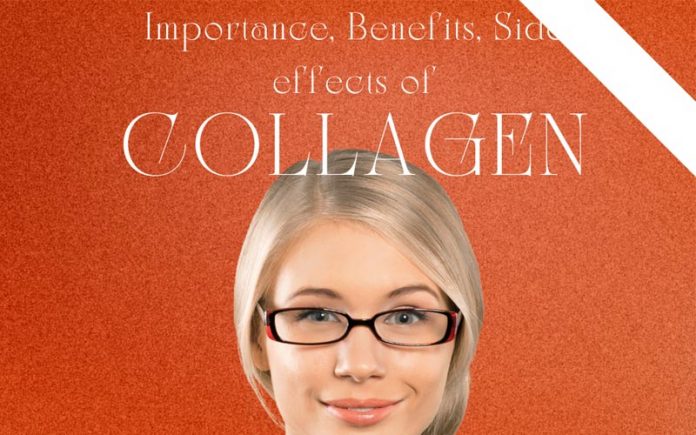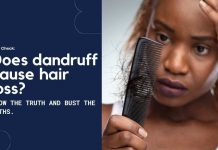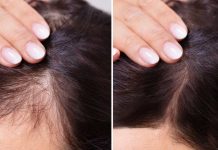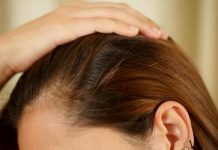Making the right decision always helps you in the long run. Hence, people tend to take extreme measures regarding hair loss. Many are unaware of their body’s basic necessity to prevent hair fall. The nutrients and minerals for hair growth must be present in the body to make your hair grow longer, thicker, and more robust. Collagen is one such nutrient responsible for hair growth in various ways. Collagen can be found inside your skin and connective tissues.
What Is Collagen – Importance, Benefits, Side Effects
Collagen is one of the body’s most abundant proteins, making up approximately one-third of all protein content in the human body.
- Collagen helps support skin and bones, maintaining healthy hair, nails, and connective tissue.
- It is often called the “glue” that holds your body together.
Collagen is also the foundation of our hair and surrounds every strand, providing structure and quality.
Importance of Collagen for Hair Health
The loss of hair is a common problem faced by both men and women at some point during their lives. Collagen is essential for preserving the health of our hair follicles. Our bodies create less collagen as we age, resulting in weaker hair and hair loss. Collagen also aids in improving blood circulation, which is necessary for the delivery of nutrients to the hair follicles.
When collagen production stops, the hair can become thin and brittle, resulting in breakage and hair loss. Moreover, collagen is crucial for laying a solid foundation for hair development by providing the proteins required for the hair shaft to grow. Maintaining appropriate collagen levels through food, supplements, and other ways can thus help prevent hair loss and enhance your hair’s overall health and look.
Benefits of Collagen Supplementation for Hair Loss
Collagen supplements can help with hair loss in a variety of ways. It can help strengthen the hair, increase its quality, and minimize breakage by raising collagen levels in the body.
Collagen also aids in blood circulation, which allows critical nutrients to reach the hair follicles and promotes hair growth.
- Collagen promotes thicker, fuller-looking hair by restoring lost collagen to your scalp, allowing it to repair damaged hair follicles that cause thinning and breakage. This results in thicker-looking locks with greater volume along each strand of hair from root to tip.
- Collagen can help prevent premature grayness – Collagen consistently delivers vital amino acids to the hair follicle, resulting in a stronger structure. The follicular structure is responsible for the colour of your hair, and if collagen levels are high, greying will be reduced automatically.
- Collagen also includes amino acids such as proline, glycine, and arginine for hair development—these amino acids aid in keratin production. This protein makes up the hair shaft.
- Collagen can help reduce hair breakage and split ends – As we age, our body’s collagen production decreases. This causes elasticity loss, resulting in hair breakage and split ends. Collagen provides strength and enhances the moisture content of the hair. Dry hair can cause frizziness, breakage, and split ends. Collagen will provide the required moisture and relieve the hair of these issues.
Side effects of collagen hair treatment
As the adage goes, ‘Excess of everything is bad’! Too much collagen supplement, like any other supplement, is bad for your health.
Collagen hair treatments are generally considered safe, but there are some possible side effects to keep in mind, such as:
- Allergic reactions: Some people may be sensitive to collagen or other substances used in hair treatments, causing skin irritation, rashes, and other allergic responses.
- Hair breakage & damage: Overuse of collagen hair treatments can cause hair breakage and damage, especially if the hair is already fragile or damaged.
- Buildup on hair: If collagen hair treatments are not thoroughly rinsed out, they can leave a residue on the hair, causing buildup and making the hair seem dull and lifeless.
- Scalp irritation: Collagen hair treatments can cause scalp irritation, especially if used for an extended period or if the hair is sensitive.
- Smell: Some collagen hair treatments have an unpleasant odour that lingers on the hair.
Collagen is possibly a great solution to all of your hair concerns. Remember to consult your doctor before purchasing any collagen-containing products and to use collagen only under their supervision. Furthermore, remember to do a patch test.
Collagen Vs. Gelatin: What’s The Difference?
Collagen: Collagen is a protein in our bodies composed of amino acids. Our bodies produce collagen, which may be supplemented externally using collagen supplements. Hydrolyzed collagen is a kind of collagen supplement. Because hydrolyzed collagen is a broken-down version of collagen, it is easier for the body to digest and absorb.
Gelatine: A collagen derivative, gelatine is an amino acid beneficial to the human body. Collagen is converted to gelatine when heated to a high temperature.
There are a couple of differences between collagen and gelatin.
- The primary distinction between hydrolyzed collagen and gelatine is the manufacturing technique. Hydrolyzed collagen has been completely hydrolyzed, whereas gelatine has only been partially hydrolyzed. This forms a gel-like material that is not entirely absorbed as collagen.
- Collagen is insoluble in water and other solvents, but gelatin dissolves in hot water and cools to form a gel. This is because the hydrolysis of collagen in gelatin creates gelatin’s distinct gel form.
Types of Hair Loss & Percentage of People affected
| Type of Hair Loss | Prevalence in India | Age Group Affected |
|---|---|---|
| Androgenetic Alopecia (Male Pattern Baldness) | 50% of men by age 50 | Men in 20s-30s mostly, but, can occur at any age |
| Androgenetic Alopecia (Female Pattern Hair Loss) | 40% of women by age 50 | Mostly affects women |
| Telogen Effluvium | 25-30% of dermatology patients | Can affect all age groups, most common for women in their 30s and 40s |
| Alopecia Areata | 0.1-0.2% of the general population | Can affect all age groups |
| Traction Alopecia | Common for people with tight hairstyles (braids, ponytails) | Can affect all age groups |
Wrapping Up
Collagen is a protein that promotes the structure and integrity of hair follicles, and collagen supplementation may stimulate hair growth and thickness. On the other hand, a balanced diet and a healthy lifestyle remain essential factors in stimulating hair development and avoiding hair loss.
At Kolors Healthcare, we provide a variety of hair loss treatments that include natural and scientific procedures supplemented by a healthy eating plan. These therapies are designed to give practical answers to people suffering from hair loss, which may be a stressful and emotional experience. To learn more, make an appointment at a branch closest to you and meet us.
Collagen and Hair Loss FAQs
Can take collagen helps to regrow hair?
Collagen is high in amino acids, which your body requires to form keratin, the protein that makes up the hair. Human studies on using collagen to promote hair growth are still lacking.
Can collagen thicken hair?
Collagen supplements can boost the production of hair-building proteins in the body, leading to thicker and longer hair.
Can taking collagen damage hair?
No proof taking collagen supplements may harm your hair. Collagen has been shown to stimulate hair, skin, and nail development and strength. However, before beginning any new supplement regimen, consulting with a healthcare expert is always best.
Is collagen better than biotin for hair loss?
No definitive answer is whether collagen or biotin is better for hair loss because it depends on the underlying cause. Collagen and biotin can help healthy hair, but seeking specific guidance from a healthcare practitioner is better.









